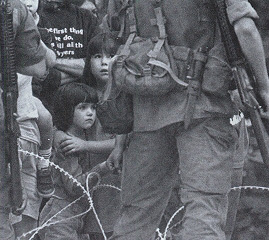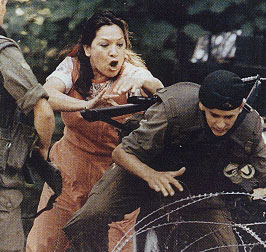2) Gatekeepers
Any person or group that has control over the message
All "mass communications" organizations have multiple gatekeepers.
In Film and TV, on the national level, Directors, Producers, Editors, "standards and practices," and financial backers all influence control.
In print, you have multiple editors, publishers, sales staff, and advertisers exerting control.
In local TV and radio, you have station management, advertisers, and legal controls.
In the recording industry, you have the record companies, managers, producers, sound engineers, and marketing staff influencing decisions.
Except for the Internet, which may or may not have gatekeepers.
"The genuflection toward "fairness" is a familiar news room piety, in
practice the excuse for a good deal of auto pilot reporting and lazy
thinking but in theory a benign ideal. In Washington, however, a
community in which the management of news has become the single
overriding preoccupation of the core industry, what "fairness" has often
come to mean is a scrupulous passivity, an agreement to cover the story
not as it is occurring but as it is presented, which is to say as it is
manufactured."
Click here to read "Re-thinking Objectivity".
|

 ©David Laurence ©David Laurence
Two pictures taken from the same event ran in two different newspapers. In one, frightened children cower before armed soldiers. In another, a woman pushes a soldier onto barbed wire. At each paper, a gatekeeper made a choice as to which photo to print. Do the photos tell the same story?
French television network "Canalplus" shows us exactly how a gatekeeper can create reality. Watch this television commercial carefully. You'll realize that there is no "truth" in the media, only pieces of information which can be manipulated.
It's even easier to manipulate photos. With the rise of the internet, digital manipulation of news images has increased. Some news organizations prohibit them. Others deliberately use them to enhance a point of view. So your choice of news media, and their attitude towards manipulating their audience, is critical.
Click here to read "Ethics in the age of digital manipulation". |
As "The Other Parent" implies, gatekeeping is a highly complex issue. On one hand are social gatekeepers, like parents and the government. Their purpose is to restrict content which might cause social or individual harm. One example of this is the government's multi-year attempt to limit tobacco advertising.
"The FDA tried to restrict tobacco advertising in 1996, but the tobacco industry successfully challenged those efforts in court and argued that the agency has overstepped its authority. That laid the groundwork for a 13-year effort by public health groups to win passage of a new tobacco-control law."
Click here to read "New FDA rules will greatly restrict tobacco advertising and sales".
Industry gatekeepers operate under many motives. They work as voluntary social gatekeepers to prevent more oppressive government regulation. That's why you have voluntary movie, TV, and video game ratings. They also work to preserve the "integrity" of an industry. So some news organizations have gatekeepers to ensure the accuracy of their reporting.
However, the purpose of business is to make money. So gatekeeping must be balanced with business objectives. Some news organizations are less concerned about "integrity" than income, so they use fewer gatekeepers or gatekeepers who are less strict.
What happens when gatekeepers work in the best interest of the business and not the public? Sometimes both the business and the public are harmed.
"Another difference is that The Times is opening more of its news process to public view. It once did not matter if editors had all of their facts straight at the morning news meeting; there was plenty of time for reporting and editing. But with the world looking over their shoulders, things are different. Editors are dressing better, speaking in complete, sound-bite sentences, and mistakes are embarrassing."
Click here to read "The Danger of Always Being On".
|